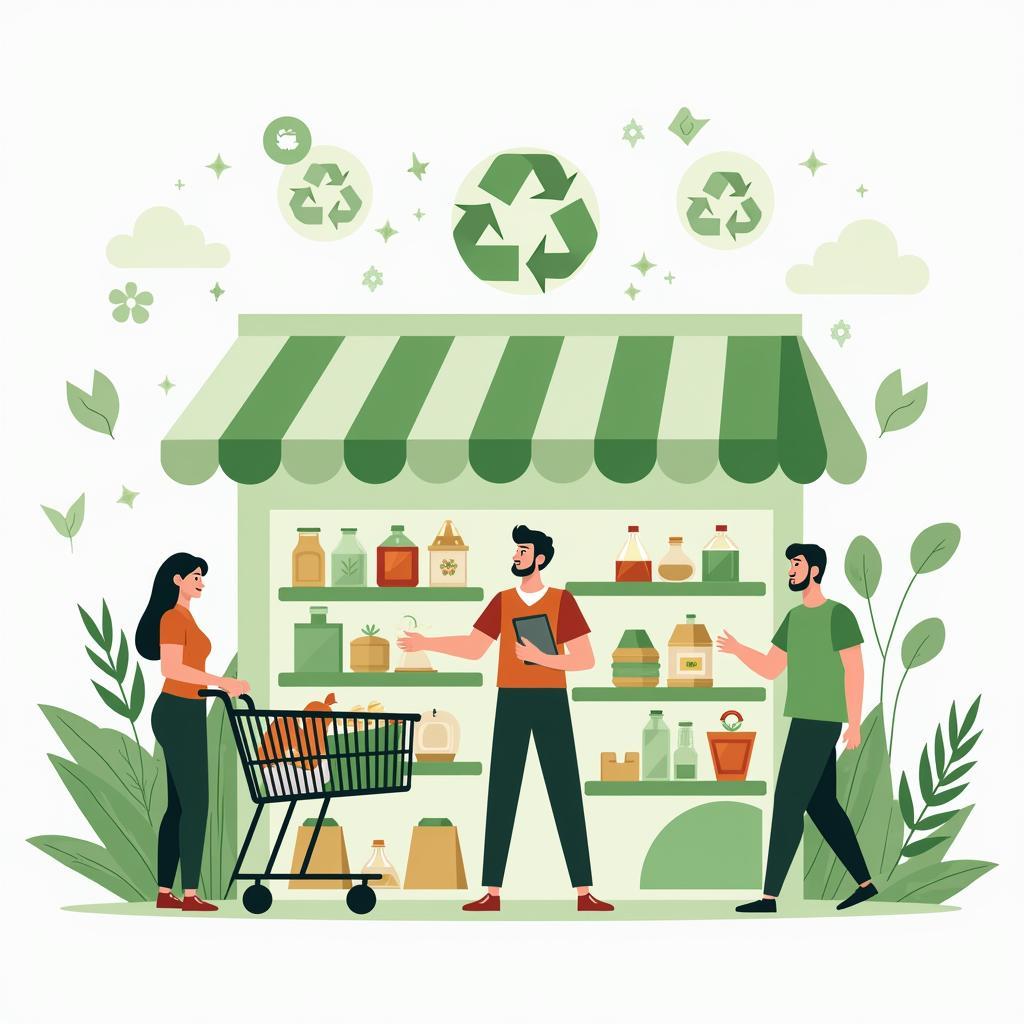The topic of ethical consumption and sustainability has become increasingly prevalent in IELTS Writing Task 2, appearing in various forms across recent test papers. Based on analysis of past examinations, this theme frequently emerges in argument, discussion, and two-sided essay questions. Let’s examine a recent actual test question and explore sample responses across different band scores.
Some people believe that promoting ethical consumption is crucial for ensuring a sustainable future, while others think individual consumer choices have minimal impact on global sustainability. Discuss both views and give your own opinion.
Essay Analysis
This discussion essay requires candidates to:
- Explore both perspectives on ethical consumption’s impact
- Provide relevant examples and supporting evidence
- Present a clear personal stance
- Structure arguments logically
- Use appropriate academic language

Band 9 Sample Essay
Many people debate whether individual purchasing decisions can significantly influence global sustainability. While some argue that ethical consumption is vital for our planet’s future, others contend that such choices have limited impact. I believe that ethical consumer behavior, combined with systematic changes, plays a crucial role in achieving environmental sustainability.
Those who support ethical consumption argue that collective consumer choices create substantial market impacts. When millions of people choose eco-friendly products, companies are forced to adapt their practices to meet this demand. For example, the growing preference for sustainable packaging has led many major retailers to reduce plastic use significantly. Additionally, importance of ethical investing for sustainable development demonstrates how consumer pressure can influence corporate behavior and drive positive environmental change.
Conversely, skeptics maintain that individual choices are insignificant compared to industrial-scale environmental damage. They argue that without stringent government regulations and corporate accountability, personal consumption habits barely affect global sustainability. This view is supported by statistics showing that just 100 companies are responsible for 71% of global emissions, suggesting that individual actions may seem futile.
In my opinion, while individual actions alone cannot solve global environmental challenges, ethical consumption remains essential for several reasons. Firstly, it creates market pressure that drives innovation in sustainable technologies and practices. Secondly, How to promote ethical consumerism in the digital age shows how collective consumer awareness can lead to significant policy changes. Finally, ethical consumption habits contribute to broader social awareness and behavioral change.
Band 7 Sample Essay
The impact of ethical consumption on environmental sustainability is widely debated. This essay will examine both perspectives on this issue and provide my viewpoint.
Proponents of ethical consumption believe individual choices can make a difference. When people choose environmentally friendly products, it sends a message to manufacturers about consumer preferences. For instance, the increasing demand for organic food has led to more sustainable farming practices. Furthermore, should ethical consumerism be taught in schools suggests that educated consumers can influence market trends.
However, others argue that individual actions have minimal impact on global sustainability. They point out that major industrial operations and corporate practices cause most environmental damage. Additionally, many people cannot afford ethical products, limiting the potential impact of consumer choice.
I believe both arguments have merit, but ethical consumption is important for long-term sustainability. While individual actions might seem small, collective consumer behavior can drive significant change. Companies respond to consumer demands, and widespread ethical consumption could force industries to adopt more sustainable practices.
Key Vocabulary
- Ethical consumption (n) /ˈeθɪkəl kənˈsʌmpʃən/ – The practice of purchasing products that are not harmful to the environment or society
- Sustainability (n) /səˌsteɪnəˈbɪləti/ – The ability to maintain at a certain level without depleting natural resources
- Corporate accountability (n) /ˈkɔːpərət əˌkaʊntəˈbɪləti/ – The responsibility of companies for their actions
- Market pressure (n) /ˈmɑːkɪt ˈpreʃə/ – The influence of consumer demand on business practices
- Environmental impact (n) /ɪnˌvaɪrənˈmentl ˈɪmpækt/ – The effect of human activities on the natural environment
Conclusion
Future IELTS candidates should prepare for variations on this topic, including:
- The role of government in promoting ethical consumption
- Economic implications of sustainable practices
- Corporate responsibility versus consumer responsibility
- The impact of technology on sustainable consumption
Practice writing your own response to this question and share it in the comments for feedback and discussion.